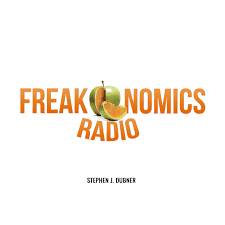When Google began, it's slogan or mission statement was "Don't Be Evil." In February 2016, Google altered its mission statement to a more vanilla "Do The Right Thing." Perhaps a more appropriate slogan for 2022 could be "Don't let people know we're a monopoly."
This week's episode of Freakonomics Radio asks the question "Is Google Getting Worse?" As Google search has become a near global monopoly, has Google let the quality of its search results decline?
Host Stephen Dubner asks these questions of a host of experts and Google employees past and present, including longtime Google executive Marissa Mayer and the company's current VP of Search, Liz Reid. They and others speak at length about Google's history, and where things with search stand today.
Listen to Is Google Getting Worse?" at freakonomics.com (there's a full transcript there too) or wherever you get podcasts.
Dubner brings some of the current complaints directly to the people involved. See below for several examples.
In this exchange, he asks Google VP, Search Reid about the prevalence of ads:
DUBNER: So here’s my recent-ish experience with Google, having used Google for a million years, but in the last year-and-a-half or two, I felt more and more that whereas in the old days, a Google search would typically produce results that were really useful to me if I wanted to learn something about the search topic, and these days, it feels to me that a Google search will more typically produce results that are useful if I want to buy something related to the search topic. And then I find myself going down further and then yeah, I find what I’m after. But it feels like a different environment. That is one person’s experience. And I’ve read a lot about other people who have related complaints about Google. So for those of us who are whining, like me, at the moment, is this our perception that’s changed or is the reality changed? Are there more ads, or more ad-related or more sponsored-related or even Google-generated snippets and so on, on the first page of a Google search result than there used to be?
REID: So the number of ads we show on a page has been capped for several years, and that hasn’t changed. I do think people sometimes come to buy as well as to research a topic, and we have done more to provide sort of non-ads-related-information about products. I do think we’re trying to continually ask the question, how do we help those who have the intent to buy successfully buy, and those who don’t have the intent to buy, not buy, right?
DUBNER: Is there a secret word that I can type in that indicates that I’m not looking to buy, I’m looking to learn?
REID: It’s a great question. So there’s not a magic word that we’re like, “Aha, this is the magic word that filters it.” But we’ll think about this. But we are trying to think about how do we do that. And so sometimes people will use, like, “Research X,” but I wouldn’t promise that that’s the secret word. I think that is something that we are actually continually exploring on.
And here is he and Mayer discussing why Google now answers many searched questions in-platform rather than pointing people towards other websites - a move some call anticompetetive
MAYER: When you see the quality of your search results go down, it’s natural to blame Google and be like, “Why are they worse?” To me, the more interesting and sophisticated thought is if you say, “Wait, but Google’s just a window onto the web. The real question is, why is the web getting worse?”
DUBNER: Okay, Marissa. “So Google’s just a window onto the web. Why is the web getting worse?”
MAYER: I think because there’s a lot of economic incentive for misinformation, for clicks, for purchases. There’s a lot more fraud on the web today than there was 20 years ago. And I think that the web has been able to grow and develop as quickly as it has because of less regulation and because it’s so international. But we also have to take the flipside of that. In a relatively unregulated space, there’s going to be economic misincentives that can sometimes degrade quality. And that does put a lot of onus on the brokers who are searching that information to try and overcome that. And it’s difficult. It kind of has to be more, in my view, of an ecosystem-style reaction, rather than just a simple correction from one actor.
…
MAYER: I think that Google is more hesitant to send users out into the web. And to me, you know, that points to a natural tension where they’re saying, “Wait, we see that the web sometimes isn’t a great experience for our searchers to continue onto. We’re keeping them on our page.” People might perceive that and say, “Well, they’re keeping them on the page because that helps them make more money, gives them more control.” But my sense is that recent uptick in the number of inline results is because they are concerned about some of the low-quality experiences out on the web. I think that the problem is really hard. You might not like the way that Google’s solving it at the moment, but given how the web is changing and evolving, I’m not sure that the old approach, if reapplied, would do as well as you’d like it to.
Listen to Is Google Getting Worse?" at freakonomics.com (there's a full transcript there too) or wherever you get podcasts.

Comments
Post a Comment
Thank You for your input and feedback. If you requested a response, we will do so as soon as possible.